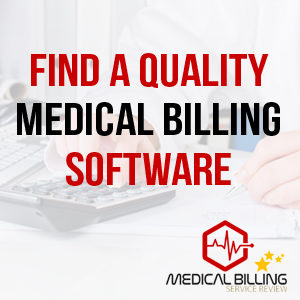
The Role of Medical Billing Services in Reducing Billing Errors and Boosting Revenue
Medical billing errors can have a significant impact on healthcare practices, resulting in delayed payments, claim rejections, and potential loss of revenue. Investing in professional medical billing services can help practices streamline their billing process, minimize errors, and ultimately boost their bottom line. In this blog, we will explore the crucial role that medical billing services play in reducing billing errors and increasing revenue for healthcare providers.
Understanding the Impact of Billing Errors
Billing errors can lead to a host of issues for healthcare providers, including:
- Rejected or denied claims due to incorrect patient information, coding errors, or missing data
- Delayed reimbursements from insurance companies, leading to cash flow issues
- Increased administrative workload to correct errors and resubmit claims
- Loss of revenue due to underbilling or non-reimbursed services
- Frustration for patients who may receive unexpected bills or struggle to understand their financial responsibility

How Medical Billing Services Minimize Errors
Professional medical billing services use a combination of expert knowledge, specialized software, and industry best practices to reduce billing errors and improve the overall efficiency of the billing process. Key benefits of using medical billing services include:
Expertise in Medical Coding and Compliance
Medical billing services employ experts with extensive knowledge of medical coding and industry regulations. These professionals stay up-to-date with changes in the healthcare landscape, such as updates to the ICD-10 code set and evolving payer requirements. By leveraging their expertise, billing services can accurately code services and ensure compliance with all applicable regulations, reducing the likelihood of errors and claim rejections.
Streamlined Claim Submission and Follow-Up
Medical billing services have well-defined processes in place for submitting and tracking claims. They use specialized software to efficiently manage claim submissions, monitor their status, and follow up on any delayed or rejected claims. This proactive approach reduces the risk of errors slipping through the cracks and ensures that any issues are addressed promptly.
Consistent and Accurate Data Entry
Data entry errors are a common cause of billing issues. Medical billing services utilize experienced staff and automated systems to ensure the accuracy and consistency of data entry. By minimizing data entry errors, billing services can significantly reduce the number of rejected or denied claims, leading to faster reimbursements and improved revenue.
Regular Audits and Quality Control
Many medical billing services perform regular audits and quality control checks to identify and rectify any potential errors before they become problems. This ongoing commitment to accuracy and quality helps to maintain a high level of billing efficiency and minimize the risk of errors impacting revenue.

The Financial Benefits of Reducing Billing Errors
By minimizing billing errors, medical billing services can deliver tangible financial benefits to healthcare practices, including:
- Improved cash flow due to faster and more accurate claim submissions
- Reduced administrative workload, allowing staff to focus on patient care and other essential tasks
- Lower risk of financial penalties due to non-compliance or billing errors
- Enhanced patient satisfaction, as patients are less likely to encounter billing issues or unexpected charges
The Value of Professional Medical Billing Services
Investing in professional medical billing services can play a crucial role in reducing billing errors, streamlining the claims process, and boosting revenue for healthcare providers. By leveraging expert knowledge, specialized software, and industry best practices, medical billing services can minimize the impact of billing errors and help practices maintain a healthy bottom line.
The Cost of Medical Billing Services
When considering outsourcing your medical billing, it’s important to weigh the costs against the potential benefits. The cost of medical billing services can vary depending on several factors, including the size of your practice, the volume of claims processed, and the level of service required. In this section, we’ll discuss the different pricing models for medical billing services and provide guidance on what to expect in terms of cost.
Pricing Models for Medical Billing Services
There are several pricing models commonly used by medical billing service providers:
- Percentage-based pricing: Under this model, the billing service charges a percentage of the practice’s total collections. This percentage typically ranges from 4% to 10%, depending on the size of the practice, the volume of claims, and the complexity of services offered. This model aligns the billing service’s incentives with the practice’s success, as higher collections lead to higher fees for the service provider.
- Flat fee pricing: Some medical billing services charge a flat fee per claim or per patient encounter. This model provides predictable costs for the practice and can be more cost-effective for practices with higher average claim values. Flat fees can range from $3 to $7 per claim or encounter, depending on the complexity and volume of claims.
- Hybrid pricing: A combination of percentage-based and flat fee pricing, this model might charge a lower percentage of collections along with a flat fee per claim. This approach can provide a balance between incentivizing the billing service to maximize collections and maintaining predictable costs for the practice.

Factors Affecting the Cost of Medical Billing Services
Several factors can influence the cost of medical billing services:
- Size of the practice: Larger practices with a higher volume of claims may be able to negotiate lower percentage fees or flat fee rates due to economies of scale.
- The complexity of services: Practices that offer specialized services or procedures with complex coding requirements may incur higher fees due to the increased expertise and resources required to accurately process claims.
- Level of service: Some medical billing services offer tiered service levels, with higher fees for more comprehensive services that include tasks such as patient billing and collections, insurance verification, and detailed reporting.
Evaluating the Return on Investment
When assessing the cost of medical billing services, it’s crucial to consider the potential return on investment. The benefits of outsourcing your medical billing can include:
- Improved revenue and cash flow due to reduced billing errors and faster claim processing
- Lower overhead costs, as in-house billing staff and related expenses can be reduced or eliminated
- More time for healthcare providers and administrative staff to focus on patient care and other essential tasks
By comparing the costs of medical billing services to the potential financial benefits and efficiency improvements, healthcare practices can make an informed decision about whether outsourcing their billing is a worthwhile investment.
Author: Mike Cynar
Mike Cynar brings buyers and sellers together by producing reviews and creating non biased webpages allowing users to share their experiences on various products and services. He and his staff write informative articles related to the medical field, legal, and other small business industries.

Leave a Reply